“Honduras is a lovely country, but learn to show your claws”
Claudia Zaccheo left her family in Mornago to take a study year in the Central American country. With Intercultura, she is having a very important experience.

To spend a year in Honduras was the decision taken by Claudia Zaccheo, 16, a student at the Gadda Rosselli High School in Gallarate, who left Mornago last August. It is an unusual destination, a little known world, where everything is to be discovered. “It’s a country in Central America,” Claudia explained, “commonly known for its wonderful Caribbean beaches, and its high crime rate (it is one of the world’s 3 most dangerous countries), but pirate films and cold statistics aside, it has much bigger treasures.”
As is often the case, the arrival shatters the dreams and expectations of the day before. “The experience I’m having is very different from what I imagined,” Claudia said. “Here in Honduras, the association AFS Intercultura isn’t as established as it is in Italy. My local centre has only one volunteer. This might be disheartening, but for me, it encouraged me to immediately accept the challenge, to get involved and learn to make the most of it. And when I saw I had done it, I felt enormous satisfaction!”
Claudia’s destination is an inland town, called Comayagua, which is known for its magnificent, colonial-style cathedral. Every year, for the week of Easter, tourists come, attracted by the famous “Alfombras”, when the streets in the centre are covered with drawings of religious scenes of “aserrin”, coloured wood shavings, in the style of street art.
The enthusiasm over the arrival disappeared with the first difficulties, problems with an “unsuitable” family disappointed her. But she didn’t given in. “Being forced to sort things out alone brought me out of my shell; I changed host family and my attitude; here, in Honduras (but in Latin American, in general), you have to show your teeth to get what you want.”
A lot of determination got her the success she was hoping for. “I joined a new family, with a sister my age, and a mother who teaches at the university. I have my independence and I know I can count on their help.”
And so, Claudia got her will and enthusiasm back, also thanks to the new young people she met together with the other exchange student, with whom she established an excellent relationship.
She also joined a project. “I’m in the Evangelical Church group, and we do some really stimulating activities; last Saturday, we did a ‘brigada médica’, a project in a village nearby, giving medical assistance to poor people.”
Claudia likes this role of giving support to the people around her; she teaches an illiterate woman in a literacy programme. “Society in Honduras is old-fashioned: women have secondary roles. Most of the population do menial jobs. With respect to Italy, it’s full of gossipmongers; it’s a very widespread practice in the country, and it’s called ‘chisme’.”
Honduras is a poor country, its economy is primarily based on agriculture. “Economic and social development was at its height around 2002 – 2006, with President Maduro,” Claudia said. “But then, subsequent leaders didn’t follow his model and the country suffered from it. The technology is all imported from the United States and, as the customs duty is very high, it’s a luxury that few can afford. The climate is the same all year round, with 35°C during the day, and 25/30°C at night. But I’ve discovered a link with Varese Province: in March, it’s changeable also in the tropics, it’s been raining for a few weeks, it’s cool and you can breathe a bit.”
The food is based on tropical fruit, like guavas, sapotes, mangoes, pineapples, passion fruit, and vegetables, cheese, meat and, above all, the so-called “frijoles”, or beans. “A typical dish is baleada,” Claudia said, “a wrap with beans, avocado, eggs and fried plantain; they’re delicious!!! On the table, there’s never any shortage of ‘frescos’, wholesome fruit juices served in plastic bags. At dawn, carts drawn by cows or donkeys bring the milk to the homes, and people sell food on the streets until late at night. All that’s missing is jam croissants …”
The school system is different. “There’s only one level of school: from pre-school (which they call ‘prekinder’) to school (which they call ‘kinder’), they spend 11 or 12 years, where everyone goes to the same institute. There are lots of schools, state-run and private. The state schools are mostly low quality. There’s apparently a law that says anyone below the age of 16 must go to school, but there are more children and teenagers selling on the street than there are studying.”
Claudia is learning general subjects. “It’s like being in middle school in Italy”: Spanish, history, sciences (chemistry and biology), art, computers, sociology.
Lessons begin at 7 a.m., and end at 2 p.m. Then Claudia returns home, does her homework, and devotes herself to extracurricular activities, like the band, three times a week.
On Saturday, she attends the parish church and catechism, and then goes around the town with her friends; on Sunday, there is a family outing. “To get around, you have to be responsible. If I want to go out, I have to call a reliable taxi and I walk alone, only in the morning, and only a block at most. The country’s judicial system is fragile; there’s a lot of crime, and the people’s dissatisfaction can be felt. For example, only a few can afford to go to school, and many people aren’t even registered with the town hall. This is why certain people are calling for a revolt, others wait, but everyone prays. Religion is of primary importance, and their everyday belief is having faith. A country like this drives you to survive, and once you’ve adapted, life is pure adrenaline and a lot of wisdom.”
“What I like most is that the roads are bursting with life at all hours, also because, here, you can paint the houses any colour, even if they’re in the town centre! The liveliest are called ‘puperías’, and they’re little shops where they sell food and essentials.”
This decidedly intense life experience is also giving Claudia some interesting ideas for her future. “What I’m experiencing is strengthening my interest in sociology and in journalism. I haven’t made any final decisions yet, but I’ve certainly got some clearer ideas. One thing is quite plain to me: seeing a country with so many difficulties makes me think that our country is a lovely place and that we Italians are certainly lucky.”
La community di VareseNews
Loro ne fanno già parte
Ultimi commenti
lenny54 su A Varese Salvini prova a ricucire passato e futuro della Lega, ma Bossi non c'è
PaoloFilterfree su A Varese Salvini prova a ricucire passato e futuro della Lega, ma Bossi non c'è
axelzzz85 su A Varese Salvini prova a ricucire passato e futuro della Lega, ma Bossi non c'è
elenera su A Varese Salvini prova a ricucire passato e futuro della Lega, ma Bossi non c'è
Roberto Colombo su A Varese Salvini prova a ricucire passato e futuro della Lega, ma Bossi non c'è
flyman su Quarant’anni di Lega e quelle scritte nel paese del “Capo“



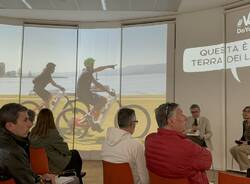
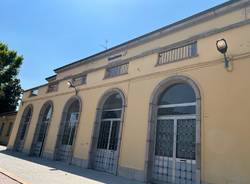
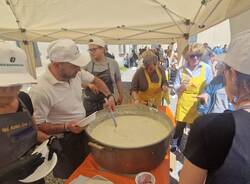
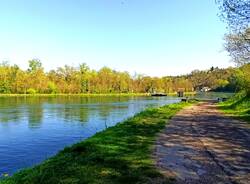
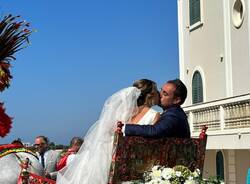

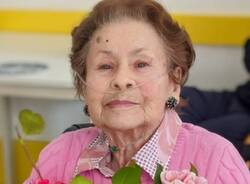

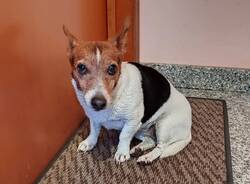


Accedi o registrati per commentare questo articolo.
L'email è richiesta ma non verrà mostrata ai visitatori. Il contenuto di questo commento esprime il pensiero dell'autore e non rappresenta la linea editoriale di VareseNews.it, che rimane autonoma e indipendente. I messaggi inclusi nei commenti non sono testi giornalistici, ma post inviati dai singoli lettori che possono essere automaticamente pubblicati senza filtro preventivo. I commenti che includano uno o più link a siti esterni verranno rimossi in automatico dal sistema.